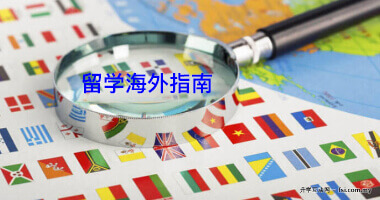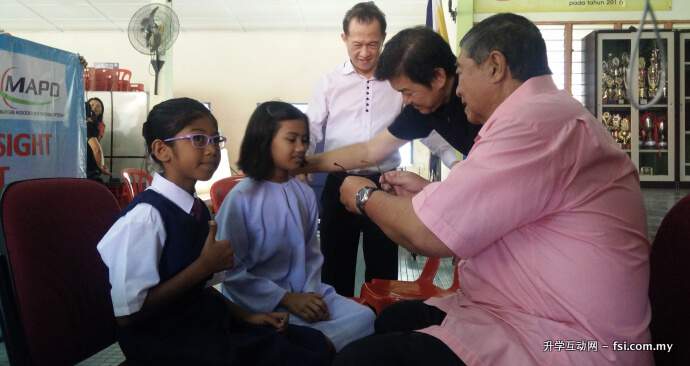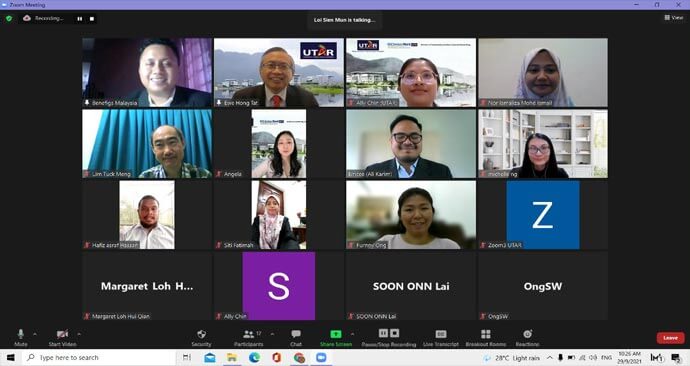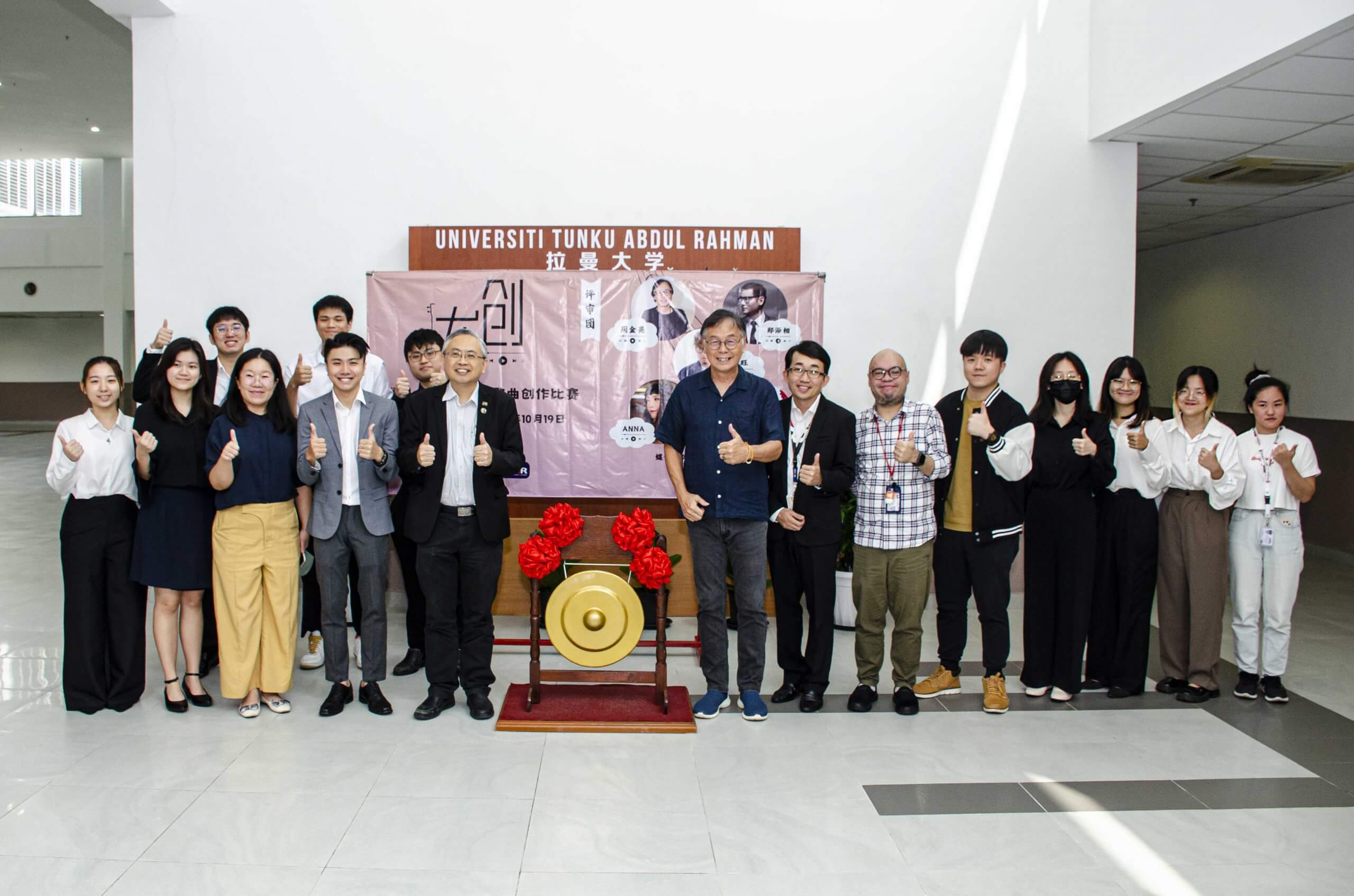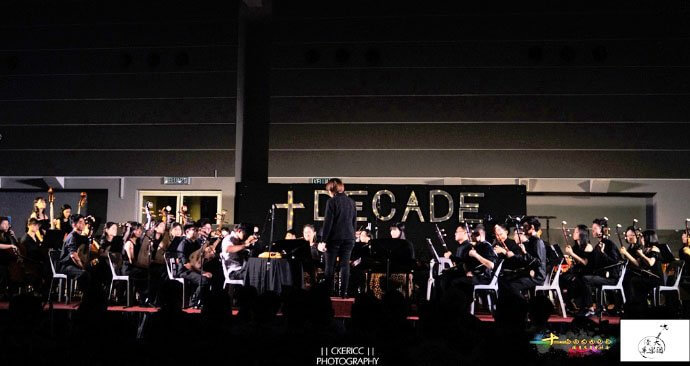Delegates from the China Academy of Electronics and Information Technology (CAEIT) and Malaysia Digital Economy Corporation (MDEC) called on UTAR Kampar Campus on 27 April 2018.
Welcomed by UTAR President Ir Prof Academician Dato’ Dr Chuah Hean Teik, the CAEIT delegates were its Vice President Zhang Long, Deputy Director of Innovation Centre Liao Yong, Deputy Director of International Cooperation Department Wei Li, Deputy Director of Research & Commercialization Han Tian Xiao, and Zhongzhi Gathered Investment Consulting Ltd General Manager Hedy; while the MDEC delegates were its Chief Operating Officer (COO) Dato’ Ng Wan Peng, Vice President of Investment and Industry Development Hew Wee Choong, Manager of Investment and Industry Development Renee Ho Suet Ling, and Special Officer from COO’s Office Connsynn Chye.
Other UTAR delegates included Vice President for R&D and Commercialisation Prof Ir Dr Lee Sze Wei, Faculty of Information and Communication Technology (FICT) Dean Assoc Prof Dr Liew Soung Yue, Faculty of Science (FSc) Dean Assoc Prof Dr Lim Tuck Meng, Faculty of Engineering and Green Technology (FEGT) Deputy Dean for R&D and Postgraduate Programmes Dr Lo Po Kim, Centre for Environment and Green Technology Chairperson Prof Ir Dr Ong Kok Seng, Division of Community and International Networking (DCInterNet) Deputy Director Dr Chen I-Chi, FEGT Head of Electronic Engineering Department Dr Soh Chit Siang, FEGT Department of Construction Management academic Dr Kwan Wai Hoe, FSc Department of Physical and Mathematical Science lecturer Ranjeet Singh Bishan Singh.
Also joining the discussion from Sungai Long Campus via video conference were Lee Kong Chian Faculty of Engineering and Science (LKC FES) Dean Prof Ir Dr Goi Bok Min, Chairperson of Centre for Immersive Technology and Creativity Dr Aloysius Yapp, DCInterNet Director Assoc Prof Dr Lai Soon Onn, and LKC FES Deputy Dean for R&D and Postgraduate Programmes Assoc Prof Dr Yong Thian Khok.
Introducing UTAR as a not-for-profit private university, Prof Chuah mentioned that UTAR is also a university “by the people” as it was established following the stalwart support of the community. Therefore, today, the University is also committed to giving back to the community through a variety of community enrichment activities. “UTAR has worked with Alibaba on an entrepreneurial project to promote exclusive new village products on e-commerce platforms which help expand new village businesses online locally and internationally. Among our recent collaborations with China included the China-Malaysia Centre for Traditional Chinese Medicine jointly launched with our MoU partner Guangxi University of Chinese Medicine. UTAR’s Institute of Management and Leadership Development (IMLD) is also the first and only institute in Malaysia recognised by China’s State Administration of Foreign Experts Affairs (SAFEA) to design and conduct training programmes for business leaders and government officials,” explained Prof Chuah.
The delegates were also given an overview of UTAR’s R&D initiatives and projects by the 32 research centres through a presentation by Prof Lee, who also mentioned that UTAR’s commitment to advance its R&D efforts has also led to the establishment of new research centres such as the Tun Tan Cheng Lock Centre for Social and Policy Studies, Centre for Railway Infrastructure and Engineering, and the Belt and Road Strategic Research Centre recently. Several inventive IT and electronics-related projects, namely Symmetric Key Generation, Biometric Encryption, Sustainable Future Cities, Automated Guided Vehicle, Big Data, Cryptographic Engine, and so on, were also introduced to the delegates with hopes for future collaborations between UTAR and CAEIT.
Expressing his gratitude to UTAR for the warm welcome, Zhang said, “It’s an honour to visit UTAR as I have long heard about this university and its remarkable achievements in just a span of 16 years. The fact that UTAR notched up its international rankings proves that this university is outstanding and progressive.”
On behalf of CAEIT, Han presented an overview of the academy and also its trailblazing projects in the areas of aeronautics and aviation solution, maritime electronics solution, cyber security solution, and microsystem and component.
Zhang further added that in line with China’s Belt and Road Initiative, CAEIT wishes to expand its network and deepen its collaborative ties with Malaysia to develop national-level strategic cooperation projects. With the keenness to establish a “Digital Economy Research Institute” in Malaysia, CAEIT would also like to join hands with UTAR in exploring the areas of Smart City, Artificial Intelligence, Network Security, and Public Safety Research Centre.

Prof Chuah (right) introducing UTAR and its various collaborations with China while Zhang (middle) and Hew listen.
The courtesy visit ended with a souvenir presentation session and a group photograph session.
Prior to the discussion, the guests from CAEIT also visited FICT and FEGT to tour around the laboratories as well as understand ongoing research projects by UTAR academics and students.
Founded in 1984, CAEIT is the academy centre of the China Electronic Technology Group Corporation (CETC), a state-owned enterprise and a leading provider of electronics and communication equipment, information systems, and software and components for military and civil industries in China. CAEIT is mainly engaged in the strategic research of national electronic and information system, providing the overall system solution and R&D and integrating large-scale electronic and information system.
MDEC is the lead agency in driving Malaysia’s digital economy by building a vibrant digital economy and ensuring that Malaysia is at the forefront of the global digital revolution. On the global front, MDEC is responsible to ensure that Malaysia plays an integral part in the digital revolution around the world, while attracting participation from ICT companies globally to invest and develop leading-edge digital and creative solutions in Malaysia.
拉曼大学 Universiti Tunku Abdul Rahman (UTAR)
http://www.fsi.com.my/会员专区/college-profile/?sponsor_id=168
http://www.fsi.com.my/utar


